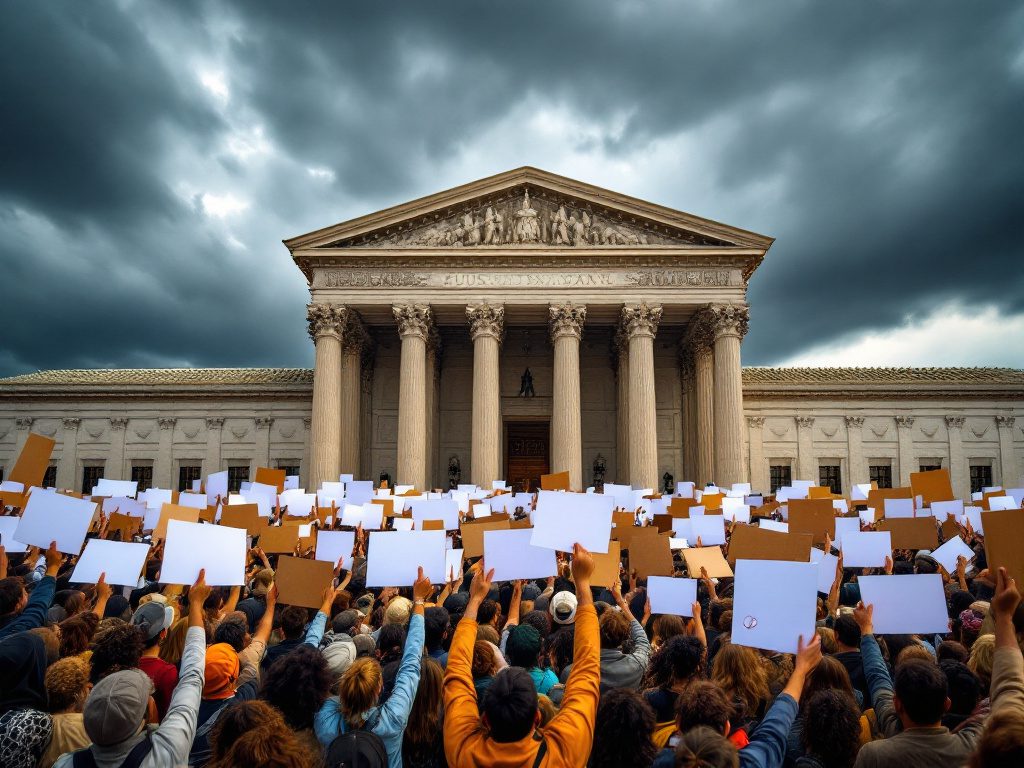Just days after French far-right leader Marine Le Pen was convicted for embezzling millions of euros from European Parliament funds, former President Donald Trump took to Truth Social to vehemently defend her, labeling the French judicial action as nothing short of a “witch hunt orchestrated by European Leftists.” Trump’s fierce endorsement of Le Pen is reflective not only of ideological affinity but also of his ongoing claims about a weaponized justice system designed to silence opposition—an argument frequently deployed during his own legal battles in the United States.
The Politics Behind Le Pen’s Controversial Conviction
Marine Le Pen’s trial garnered international attention, ending in a conviction that imposed a four-year sentence, specifically structured as two years under house arrest, rather than imprisonment—a relatively lenient treatment raising eyebrows among European judicial observers. She and several cohorts were accused of misusing European Union funds to support her National Rally party, redirecting nearly $5 million over an eleven-year period, according to the court records. Beyond the house arrest sentence, Le Pen’s conviction also mandates a five-year ban from running for office, effectively sidelining her from France’s pivotal 2027 presidential election—an election in which recent polling indicated she had as much as 37% voter support, marking a significant ten-point leap from previous elections.
Jordan Bardella, the current president of National Rally and widely presumed to be Le Pen’s ideological successor, quickly came to her defense. Bardella argued that this ruling transcends Le Pen’s personal career, stating dramatically that “French democracy itself is unjustly condemned.” The defense from within her own party underscores the broader perception within far-right political circles across Europe and America—that Le Pen’s conviction is politically motivated rather than based in impartial judicial standards.
Trump and Musk Join Forces in Condemning the European Judiciary
The fervent support from Trump comes as no surprise, given his own extensive catalog of complaints alleging politically charged prosecutions in America. In an extended social media rant, Trump compared Le Pen’s troubles directly to his own, stating explicitly that he viewed the moves against Le Pen as “Lawfare”—legal warfare aimed strategically at silencing political voices. Trump’s posts, saturated in rhetoric familiar to his base, highlighted the overlapping narratives between himself and Le Pen, turning their separate legal problems into a unified front against liberal judicial institutions.
“These politically charged attacks masquerade as justice, but they’re perpetrated solely to eliminate strong conservative voices.”
It’s worth noting that Trump’s burgeoning antagonism toward French President Emmanuel Macron has seemingly blossomed into full-throated endorsement of his chief political rival, Le Pen. The once cordial relations Trump cultivated with Macron appear now completely soured, particularly following Trump’s decision to impose hefty tariffs on EU goods, prompting Macron to pull back on U.S. investments.
Adding fuel to Trump’s narrative fire, tech billionaire Elon Musk joined the dialogue on social media, amplifying Trump’s calls for Le Pen’s “freedom.” Musk’s engagement is especially noteworthy given his global influence; his direct endorsement of Trump’s claims adds substantial weight to the perception of international solidarity among far-right and libertarian figures who feel targeted by what they term “the establishment.”
Dangerous Echoes of Political Polarization
This scenario—where prominent global figures like Trump and Musk unite behind far-right politicians embroiled in legal battles—illustrates troubling patterns in contemporary democratic politics. A closer look reveals an intensifying trend: populist figures and their advocates using legal consequences they face as grounds to question judicial impartiality rather than engaging seriously with consequences of alleged unlawful behavior.
Harvard political analyst Dr. Emily Thompson warns this trend could accelerate further polarization: “When figures of Trump’s stature declare institutions fundamentally biased, they’re not simply supporting a theoretical victim; they’re laying groundwork for widespread delegitimization of justice itself.” Thompson points to recent historical precedents, including Viktor Orbán in Hungary and Recep Erdoğan in Turkey, where similar narratives led to troubling outcomes for democratic systems.
In France, the presiding judge of Le Pen’s trial, Bénédicte de Perthuis, reportedly faced threats severe enough to warrant security protection, underscoring the real-world dangers posed by inflammatory political discourse. Ultimately, this case symbolizes more than just the fate of one polarizing politician: it embodies broader threats to democratic accountability and the rule of law.
As America’s political figures weigh in loudly on global matters, their influence reshapes how international audiences understand these trials and events. In turning a judicial ruling into a partisan flashpoint, the stakes become demonstrably higher, extending beyond individual cases and into the fabric of democracy itself. Both Trump and Musk’s interventions, though framed as principled defenses, risk contributing to a dangerous erosion of trust in institutions intended to safeguard democratic practices worldwide.

